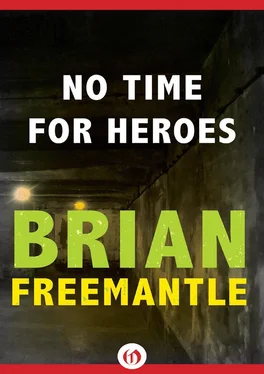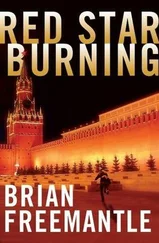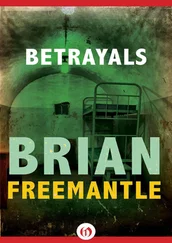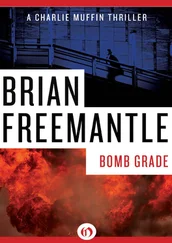Brian Freemantle - No Time for Heroes
Здесь есть возможность читать онлайн «Brian Freemantle - No Time for Heroes» весь текст электронной книги совершенно бесплатно (целиком полную версию без сокращений). В некоторых случаях можно слушать аудио, скачать через торрент в формате fb2 и присутствует краткое содержание. Жанр: Триллер, на английском языке. Описание произведения, (предисловие) а так же отзывы посетителей доступны на портале библиотеки ЛибКат.
- Название:No Time for Heroes
- Автор:
- Жанр:
- Год:неизвестен
- ISBN:нет данных
- Рейтинг книги:5 / 5. Голосов: 1
-
Избранное:Добавить в избранное
- Отзывы:
-
Ваша оценка:
- 100
- 1
- 2
- 3
- 4
- 5
No Time for Heroes: краткое содержание, описание и аннотация
Предлагаем к чтению аннотацию, описание, краткое содержание или предисловие (зависит от того, что написал сам автор книги «No Time for Heroes»). Если вы не нашли необходимую информацию о книге — напишите в комментариях, мы постараемся отыскать её.
No Time for Heroes — читать онлайн бесплатно полную книгу (весь текст) целиком
Ниже представлен текст книги, разбитый по страницам. Система сохранения места последней прочитанной страницы, позволяет с удобством читать онлайн бесплатно книгу «No Time for Heroes», без необходимости каждый раз заново искать на чём Вы остановились. Поставьте закладку, и сможете в любой момент перейти на страницу, на которой закончили чтение.
Интервал:
Закладка:
It was another hour before Danilov completed the search, but longer before he accepted it had ended. He reached the beginning of 1991 before acknowledging there had been no misspelled words over several months. He relocated the last entry, just past the middle of the year, and read more carefully through to January to confirm he had missed nothing.
He had numbered the odd letters as he isolated them: the count came to sixty-three. As he had the previous day, with the diary notes, Danilov tried to fit the characters into patterns or groups, switching back and forth from Cyrillic to Roman spelling, but they remained meaningless. On impulse he juggled further in a series of numbered sequences calculated from the dates and months and years of the entries in the Western calendar in which they appeared, against how they would have appeared in the Russian Gregorian chronology. They still didn’t make sense, and Danilov conceded a computer was the only practical way to understand what they represented. It would have been good to have worked it out by himself.
Cowley once more escorted Danilov through the admission procedure. In his office the American made a token study of the letters, shook his head in defeat and said the cryptology division were programming a computer in readiness: there was no reason for Danilov to know that despite all the changes and relaxations, of which their working together was a visibly prime example, the Bureau division monitoring Russian nationals temporarily residing in the United States maintained a bank of permanently adjusted machines operated by Russian-speaking specialists. Cowley knew, from CIA liaison, the Russian security service worked the same system in Lubyanka Square.
Danilov pointed out the abrupt stopping of the entries in the middle of 1991, and was annoyed not to have thought of it himself when Cowley remarked the first extension of Serov’s posting dated from that year.
Cowley said the two DC detectives were checking the guest lists of events in Serov’s diary which coincided with the financier’s earlier visits to Washington. And then, saving the best until last, added: ‘Something intriguing’s come from Switzerland. Seems Paulac hasn’t long been the family name. It was legally taken by his grandparents, after they fled the Ukraine in 1918. Before that it was Panzhevsky…’ Cowley smiled at the look on Danilov’s face. ‘And according to his housekeeper, Michel Paulac was a fluent Russian and Ukrainian speaker: Russian books all over the flat. She also thinks he’s entertained Russians there in the past. But his partners again say they don’t know about it…’ He paused once more. ‘We checked the passport, obviously, for entry visas into Russia. There aren’t any.’
Danilov seized the opportunity to recover from his oversight about the 1991 date. ‘Russian visas aren’t stamped into the passports of foreigners. It’s a separate arrival and departure document taken out when the holder leaves.’
‘So if he did visit, it could be traced in your Moscow immigration files?’
Danilov looked wistfully at the list of unintelligible letters on Cowley’s desk. ‘Which may not be on computer.’ In the old days the KGB and Intourist, which they controlled, had maintained detailed and easily retrievable records of all foreign visitors. He’d never imagined mourning the former Communist control. But then, he’d never imagined working in America with an FBI agent as a partner.
‘Somebody will have a lot of paper to go through?’
‘Yuri Mikhailovich is working with me,’ said Danilov. Pavin had been their scene-of-crime officer last year.
‘It could be the opening,’ urged Cowley. ‘There’d have to be a link between anyone Paulac met in Moscow with his meeting Petr Serov, here.’
‘There’d be a sponsor’s name, on his visa,’ agreed Danilov.
‘Tell Pavin I’m sorry,’ commiserated the American.
Danilov took over Serov’s former office to write the Moscow report on Paulac’s ancestry and set out the immigration chore for Pavin to attempt. He also asked the major to try to identify the unknown man pictured with Serov in two of the photographs he’d taken from Massachusetts Avenue and shipped back overnight. He said nothing in any message of the disparate letter collection which at the moment he couldn’t explain.
Oleg Firsov produced the list of embassy personnel already interviewed. Redin’s report gave a detailed account of the mortuary meeting with the Americans and of the near confrontation that had followed, but openly admitted he had discovered nothing from his search of the office or the Serov apartment.
Firsov’s dispatch to the Foreign Ministry was as empty as that of the security chief, and Danilov realised why when he repeated the interviews. The denials of any awareness of Serov’s involvement with the Swiss financier were practically recited, like the insistence Serov had been a wonderful diplomat with a wonderful wife doing a wonderful job whose murder was inexplicable.
He was behind the desk in Serov’s office, everything completed and not able to think of anything else to do, when the telephone jarred into the rooms, startling him.
‘We’ve got it!’ declared Cowley triumphantly. ‘ You got it!’
‘What?’
Cowley avoided the direct answer. ‘I could manage a drink in the roof bar of the Washington Hotel. Fifteen minutes.’
Danilov made it in twelve: the FBI man was already there. ‘Names,’ Cowley announced. ‘All Russian. Seven in total. Four are in our computers, for listed convictions or suspicion of involvement in serious crimes. One, Viktor Chebrakin, got a murder rap reduced to manslaughter in 1984: he was released two years ago. Another, Yuri Chestnoy, is suspected of two killings but the file is marked insufficient evidence. Each of the seven, according to State Department records, emigrated from the Soviet Union in the Eighties.’
‘Where do we go from here?’
‘The Russian ghetto,’ replied Cowley, answering literally. ‘I’ve already alerted the local force and our New York office. We’ll go up on the shuttle tomorrow morning.’
‘So Serov was a d’ehdooshkah,’ said Danilov.
‘It’s Godfather, not Grandfather,’ the Russian-speaking American corrected.
‘Serov was dirty, wasn’t he?’ said Danilov, enjoying his new expression.
‘Dirtier than a pig in shit,’ agreed Cowley.
The dacha was in the wooded Lenin Hills, off the Medvedkovo road, and had been the weekend retreat of a senior Party secretary before Gusovsky took it over. The KGB had installed the alarms and protective fencing, which Gusovsky had disdained as totally inadequate: now the country house was completely enclosed by a high, electrified wall, with sensors seeded in the grounds, which men constantly patrolled with Doberman dogs.
It was an elaborate party, as Gusovsky’s gatherings always were. Marquee-covered tables were bowed under goose and snipe and partridge and hazel-grouse, and there were other displays of beef and pork and chicken. There was a separate bar tent stocked with every sort of liquor and wine and a range of cigarettes and cigars, and waiters were in constant circulation. Many of the specially supplied girls were swimming naked in the pool or playing softball. There were a lot of men but no wives: some of the men were also naked in the pool. Some couples had already paired off.
Gusovsky and Yerin sat apart, side by side on the encircling verandah of the dacha, equal on identical chairs. Gusovsky counted aloud: ‘Four ministries, two at Deputy level. Three judges, and senior officers from every Militia district.’
Yerin laughed. ‘Fairly average turn-out, for midweek.’
Gusovsky waved at Kosov’s approach. Encouraged, the man climbed on to the verandah. ‘Great party. The girls are wonderful!’
Читать дальшеИнтервал:
Закладка:
Похожие книги на «No Time for Heroes»
Представляем Вашему вниманию похожие книги на «No Time for Heroes» списком для выбора. Мы отобрали схожую по названию и смыслу литературу в надежде предоставить читателям больше вариантов отыскать новые, интересные, ещё непрочитанные произведения.
Обсуждение, отзывы о книге «No Time for Heroes» и просто собственные мнения читателей. Оставьте ваши комментарии, напишите, что Вы думаете о произведении, его смысле или главных героях. Укажите что конкретно понравилось, а что нет, и почему Вы так считаете.












